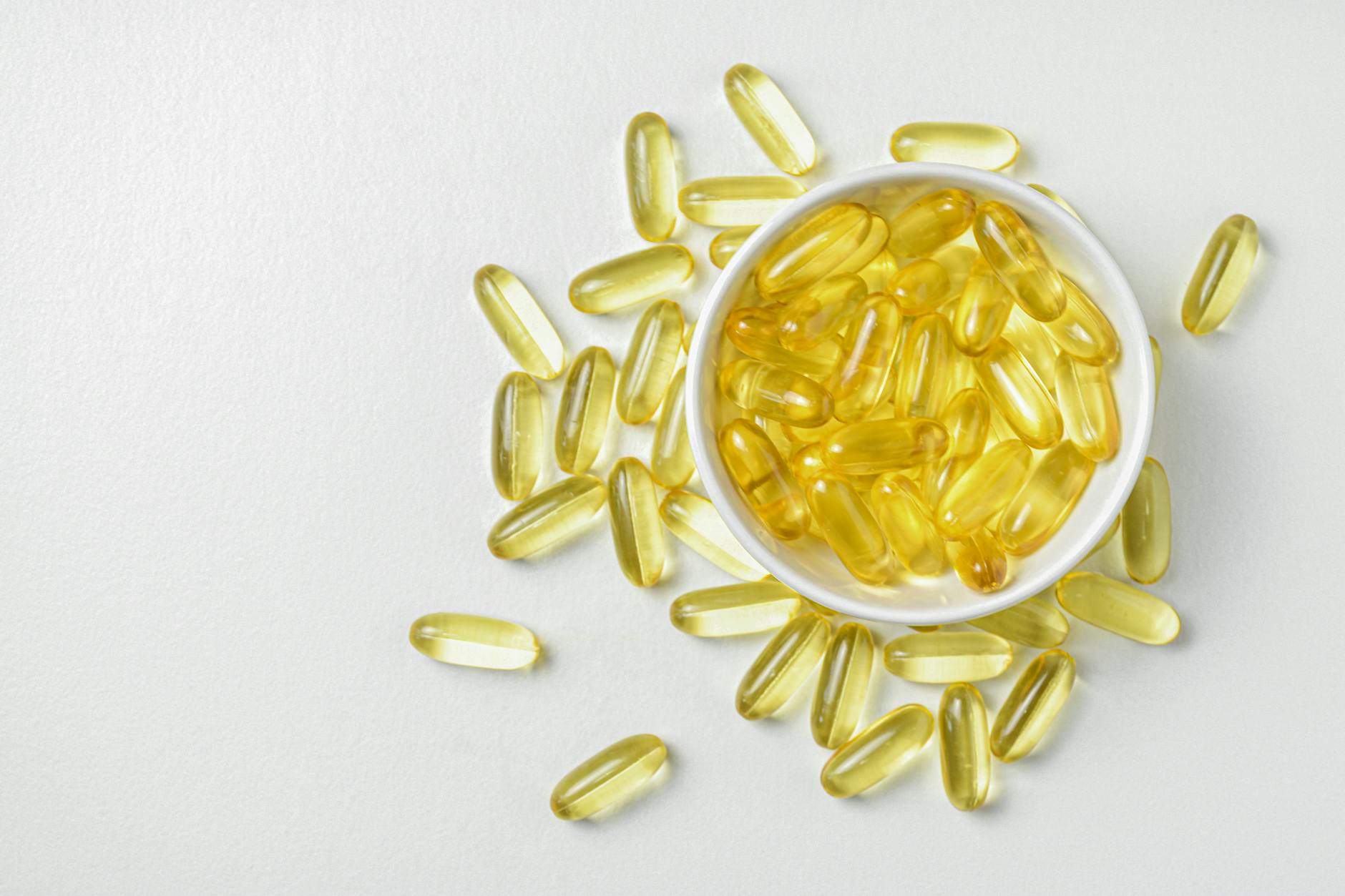Are you feeling tired, irritable, or under the weather more often than you’d like? The culprit might be hiding in plain sight: vitamin D deficiency. In a world where we spend more time indoors than ever before, our bodies are crying out for this crucial nutrient.
Vitamin D, often called the “sunshine vitamin,” is a powerhouse that affects nearly every system in our bodies. From strengthening our bones to boosting our immune system, the benefits of vitamin D are far-reaching and profound. But here’s the kicker: despite its importance, an estimated 1 billion people worldwide are vitamin D deficient. Could you be one of them?
In this blog post, we’ll dive deep into the world of vitamin D supplements and uncover their incredible benefits. We’ll explore how these tiny capsules of sunshine can transform your health, from improving your mood to potentially warding off serious diseases. So, buckle up as we embark on a journey through the eight key areas where vitamin D supplements can make a real difference in your life.

Understanding Vitamin D
Essential functions in the body
Vitamin D plays a crucial role in numerous bodily functions, making it an essential nutrient for overall health. Here are some of its key functions:
- Calcium absorption and bone health
- Immune system regulation
- Cell growth and differentiation
- Neuromuscular function
- Inflammation reduction
Natural sources vs. Supplements
| Source Type | Examples | Pros | Cons |
|---|---|---|---|
| Natural | Sunlight, fatty fish, egg yolks | Free, easily absorbed | Limited availability, seasonal variations |
| Supplements | Vitamin D3 pills, fortified foods | Consistent dosage, year-round availability | Cost, potential overdose risk |
While natural sources are preferable, supplements can be an effective way to ensure adequate vitamin D intake, especially for those with limited sun exposure or dietary restrictions.
Recommended daily intake
The recommended daily intake of vitamin D varies based on age, health status, and other factors:
- Infants (0-12 months): 400-1000 IU
- Children and adults (1-70 years): 600-2000 IU
- Adults over 70 years: 800-2000 IU
It’s important to note that these are general guidelines, and individual needs may vary. Consulting with a healthcare professional can help determine the optimal vitamin D intake for your specific situation.
With a clear understanding of vitamin D’s functions, sources, and recommended intake, we can now explore its specific benefits, starting with its impact on bone health and strength.

Bone Health and Strength
Vitamin D supplements play a crucial role in maintaining and improving bone health. This essential nutrient works in tandem with other minerals to ensure our skeletal system remains strong and resilient throughout our lives.
Improving calcium absorption
Vitamin D is vital for calcium absorption in the intestines. Without adequate vitamin D, our bodies can only absorb a fraction of the calcium we consume. This synergy between vitamin D and calcium is essential for building and maintaining strong bones.
Reducing fracture risk
Studies have shown that vitamin D supplementation can significantly reduce the risk of fractures, especially in older adults. This is particularly important for individuals at higher risk of falls or those with weakened bones.
| Age Group | Recommended Daily Vitamin D Intake |
|---|---|
| Adults 19-70 | 600 IU |
| Adults 71+ | 800 IU |
| Pregnant/Breastfeeding Women | 600 IU |
Supporting bone density
Vitamin D helps maintain bone density by:
- Regulating calcium and phosphate levels in the blood
- Promoting bone mineralization
- Stimulating bone-forming cells (osteoblasts)
Preventing osteoporosis
Adequate vitamin D intake is crucial in preventing osteoporosis, a condition characterized by weak and brittle bones. By supporting bone density and strength throughout life, vitamin D supplements can help reduce the risk of developing this debilitating condition.
With these bone health benefits in mind, it’s clear why vitamin D supplements are often recommended, especially for those at risk of deficiency. Next, we’ll explore how vitamin D contributes to boosting our immune system.

Immune System Boost
Now that we understand the basics of vitamin D, let’s explore its crucial role in boosting our immune system. Vitamin D supplements can significantly enhance our body’s defense mechanisms in several ways.
Fighting off infections
Vitamin D plays a vital role in activating our immune defenses. It helps produce antimicrobial peptides, which are like natural antibiotics that fight off harmful bacteria and viruses. Studies have shown that people with adequate vitamin D levels are less likely to suffer from respiratory infections, including the common cold and flu.
Reducing inflammation
One of the key benefits of vitamin D is its anti-inflammatory properties. Chronic inflammation is linked to various health issues, and vitamin D helps regulate the immune response to prevent excessive inflammation. This can lead to:
- Reduced risk of chronic diseases
- Faster recovery from injuries
- Improved overall health
Lowering autoimmune disease risk
Vitamin D supplements may help reduce the risk of autoimmune diseases by:
- Modulating T-cell function
- Regulating cytokine production
- Enhancing regulatory T-cells
| Autoimmune Disease | Potential Vitamin D Benefit |
|---|---|
| Multiple Sclerosis | May slow disease progression |
| Rheumatoid Arthritis | Can reduce inflammation |
| Type 1 Diabetes | May help prevent onset |
By supporting these crucial aspects of immune function, vitamin D supplements can provide a comprehensive boost to our body’s defense system, helping us stay healthier and more resilient against various health challenges.

Mood and Mental Health Benefits
Vitamin D supplements offer significant advantages for mood regulation and mental health. Let’s explore how these supplements can positively impact your psychological well-being.
Alleviating depression symptoms
Vitamin D plays a crucial role in mood regulation, and its deficiency has been linked to an increased risk of depression. Studies have shown that supplementation can help alleviate symptoms of depression, especially in individuals with low vitamin D levels. Here’s a breakdown of the potential benefits:
- Increased serotonin production
- Improved neurotransmitter function
- Enhanced mood stability
Combating seasonal affective disorder
Seasonal Affective Disorder (SAD) is a type of depression that’s related to changes in seasons. Vitamin D supplementation has shown promise in managing SAD symptoms:
| SAD Symptom | Potential Vitamin D Benefit |
|---|---|
| Low energy | Increased vitality |
| Mood swings | Improved mood stability |
| Sleep issues | Better sleep quality |
Enhancing cognitive function
Vitamin D receptors are present throughout the brain, suggesting its importance in cognitive function. Research indicates that maintaining adequate vitamin D levels may support:
- Improved memory and recall
- Enhanced problem-solving skills
- Reduced risk of cognitive decline
By addressing vitamin D deficiency through supplementation, individuals may experience improvements in their overall mental health and cognitive abilities. As we explore further benefits, we’ll see how vitamin D supplements can also contribute to heart health.
Heart Health Improvements
As we explore the benefits of vitamin D supplements, it’s crucial to understand their impact on heart health. Vitamin D plays a significant role in maintaining cardiovascular well-being through various mechanisms.
Lowering Blood Pressure
Vitamin D supplementation has shown promising effects on blood pressure regulation. Studies suggest that adequate vitamin D levels can help:
- Reduce systolic and diastolic blood pressure
- Improve endothelial function
- Decrease the activity of the renin-angiotensin system
| Blood Pressure Component | Effect of Vitamin D |
|---|---|
| Systolic | Reduction |
| Diastolic | Reduction |
| Overall | Improvement |
Reducing Cardiovascular Disease Risk
Maintaining optimal vitamin D levels may contribute to a lower risk of cardiovascular diseases. This is achieved through:
- Reducing inflammation in blood vessels
- Improving arterial elasticity
- Enhancing calcium metabolism
Regulating Cholesterol Levels
Vitamin D supplements can positively influence cholesterol levels, contributing to better heart health. Benefits include:
- Increasing HDL (good) cholesterol
- Reducing LDL (bad) cholesterol
- Improving overall lipid profile
These heart health improvements highlight the importance of maintaining adequate vitamin D levels through supplementation when necessary. As we move forward, we’ll explore how vitamin D supplements may contribute to cancer prevention.

Cancer Prevention Potential
The potential of vitamin D in cancer prevention has garnered significant attention in recent years. While research is ongoing, several studies have shown promising results in the relationship between vitamin D and reduced cancer risk.
Lowering risk of certain cancers
Vitamin D supplements may play a role in reducing the risk of certain types of cancer. Research has shown particularly promising results for:
- Colorectal cancer
- Breast cancer
- Prostate cancer
| Cancer Type | Potential Risk Reduction |
|---|---|
| Colorectal | Up to 30% |
| Breast | Up to 20% |
| Prostate | Up to 25% |
Supporting cancer treatment outcomes
In addition to prevention, vitamin D may also support better outcomes for those undergoing cancer treatment. Some potential benefits include:
- Enhanced immune function
- Improved treatment efficacy
- Reduced treatment side effects
Ongoing research and studies
While initial findings are promising, it’s important to note that research in this area is ongoing. Several large-scale clinical trials are currently underway to further investigate the relationship between vitamin D supplementation and cancer prevention and treatment.
As we explore the potential of vitamin D in cancer prevention, it’s crucial to remember that maintaining overall health through a balanced diet, regular exercise, and appropriate supplementation can contribute to reducing cancer risk. Next, we’ll examine how vitamin D impacts muscle function and strength, another important aspect of overall health.

Muscle Function and Strength
Vitamin D supplements play a crucial role in maintaining and improving muscle function and strength. This essential nutrient goes beyond just supporting bone health, offering significant benefits for our muscular system.
Reducing muscle weakness
Vitamin D deficiency is often associated with muscle weakness and fatigue. Supplementation can help:
- Increase muscle protein synthesis
- Enhance muscle fiber size and strength
- Reduce inflammation in muscle tissues
Improving athletic performance
Athletes and fitness enthusiasts can benefit from adequate vitamin D levels:
| Benefit | Description |
|---|---|
| Increased power | Vitamin D helps improve muscle contraction force |
| Better endurance | Enhances aerobic capacity and reduces recovery time |
| Injury prevention | Strengthens muscles and bones, reducing risk of sports-related injuries |
Decreasing fall risk in older adults
For the elderly, vitamin D supplementation can be particularly beneficial:
- Improves balance and coordination
- Enhances muscle responsiveness
- Reduces the risk of age-related muscle loss (sarcopenia)
By maintaining adequate vitamin D levels through supplementation, individuals can support their overall muscle health and function. This not only contributes to better physical performance but also promotes independence and quality of life, especially in older adults.

Addressing Vitamin D Deficiency
Identifying symptoms
Vitamin D deficiency can often go unnoticed, but there are several telltale signs to watch out for:
- Fatigue and tiredness
- Bone pain or weakness
- Muscle aches or cramps
- Mood changes, including depression
Risk factors for deficiency
Certain factors can increase your likelihood of developing a vitamin D deficiency:
| Risk Factor | Explanation |
|---|---|
| Limited sun exposure | Reduces natural vitamin D production |
| Dark skin | Melanin reduces vitamin D synthesis |
| Obesity | Fat cells trap vitamin D |
| Age | Older adults have reduced absorption |
| Certain medical conditions | Affect vitamin D metabolism |
Proper dosage and supplementation
The recommended daily intake of vitamin D varies based on age and health status:
- Infants (0-12 months): 400 IU
- Children and adults (1-70 years): 600 IU
- Adults over 70: 800 IU
However, individuals with deficiencies may require higher doses under medical supervision.
Potential side effects and precautions
While vitamin D supplements are generally safe, excessive intake can lead to:
- Hypercalcemia (high blood calcium levels)
- Kidney stones
- Nausea and vomiting
It’s crucial to consult with a healthcare provider before starting any supplementation regimen, especially if you have pre-existing medical conditions or take other medications. They can help determine the appropriate dosage and monitor your vitamin D levels to ensure optimal health benefits while minimizing potential risks.

Vitamin D supplements offer a wide range of health benefits that extend far beyond bone health. From boosting the immune system and improving mood to potentially reducing the risk of heart disease and certain cancers, this essential nutrient plays a crucial role in maintaining overall well-being. By addressing vitamin D deficiency through supplementation, individuals can enhance their muscle function, strengthen their bones, and support their mental health.
As we’ve explored the numerous advantages of vitamin D supplements, it’s clear that maintaining adequate levels of this vital nutrient is essential for optimal health. If you’re concerned about your vitamin D levels or are interested in reaping the benefits of supplementation, consult with your healthcare provider to determine the appropriate dosage for your individual needs. Remember, a simple blood test can reveal your current vitamin D status and guide you towards a healthier, more vibrant life.







